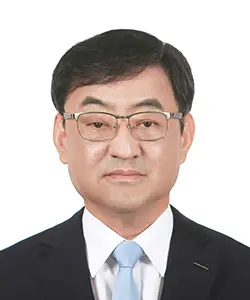
Moo Hwan Kim (PhDNE ’86)
President, Pohang University of Science and Technology
We are honoring Moo Hwan as a nuclear engineer and academic leader who has made innovations that significantly improve fundamental understanding of two-phase flow and heat transfer as applied to nuclear energy systems.
How did you decide on your major?
My undergraduate major all the way up to my PhD degree are in nuclear engineering. I chose this field of study after a conversation I had in 1976 with the late Siyeol Park, a friend of my father and a former director of nuclear development at the Ministry of Science and Technology of Korea in 1976. He stayed up all night, emphasizing the importance of overcoming the oil crisis—remember the first oil crisis in early 1970s—and securing energy independence to persuade me to study nuclear engineering. Until this conversation, I was set on studying physics. I began my studies at UW-Madison in the summer of 1982, just three years after the Three Mile Island nuclear accident, the first nuclear power plant accident in the U.S. I remember that it was that much more significant and relevant to me to study nuclear safety.
As a student here, how did you spend your free time?
Free time was something that was rare for an international student, especially with a wife and two sons. I cherished pockets of downtime when I golfed with friends. Even now, the places I remember the most from UW-Madison are the temporary buildings next to the football field, the Engineering Research Building, and the Odana golf course. I also can’t forget hanging out at the pub with my advisor and colleagues on Friday afternoons. We drank beer and mostly talked about restaurants, food and sports. Being new to American sports, I remember studying the sports section of USA Today diligently before our gatherings so I had something to say.
How did your experience in the College of Engineering shape your career path?
First of all, studying at UW-Madison has influenced basically everything I have done in my work related to nuclear energy and as a professor and as president of the Korea Institute of Nuclear Safety. More importantly, the way my advisor, Professor Michael Corradini, took care of each and every student and supported us has greatly influenced me in my role as professor and in managing a university.
What advice would you give students today?
As a professor, I always tell my students to constantly challenge themselves and to not be afraid of failure. It is important to build resilience and to learn that failure is just a part of the process. That said, I believe having integrity and the right set of values are absolutely necessary to becoming a great scientist. Of course, scientists must have curiosity, creativity and communications skills to be great but underlying those qualities, they must remain ethical.
Anyone you’d like to mention?
First and foremost, I want to thank my wife, Jeong Nam Yoo. I owe my life to her as she gave me one of her kidneys about three and a half years ago. I can still do the things I love today thanks to her devotion. All that I am today, I owe entirely to her. I am also grateful and proud of my two sons, Bum Jun and Arthur, who are all grown up and playing their part in the world, though I couldn’t spend more time with them when they were younger because I was always working late at school. Lastly, I am deeply grateful to my deceased parents and in-laws for allowing our family to exist in this world.